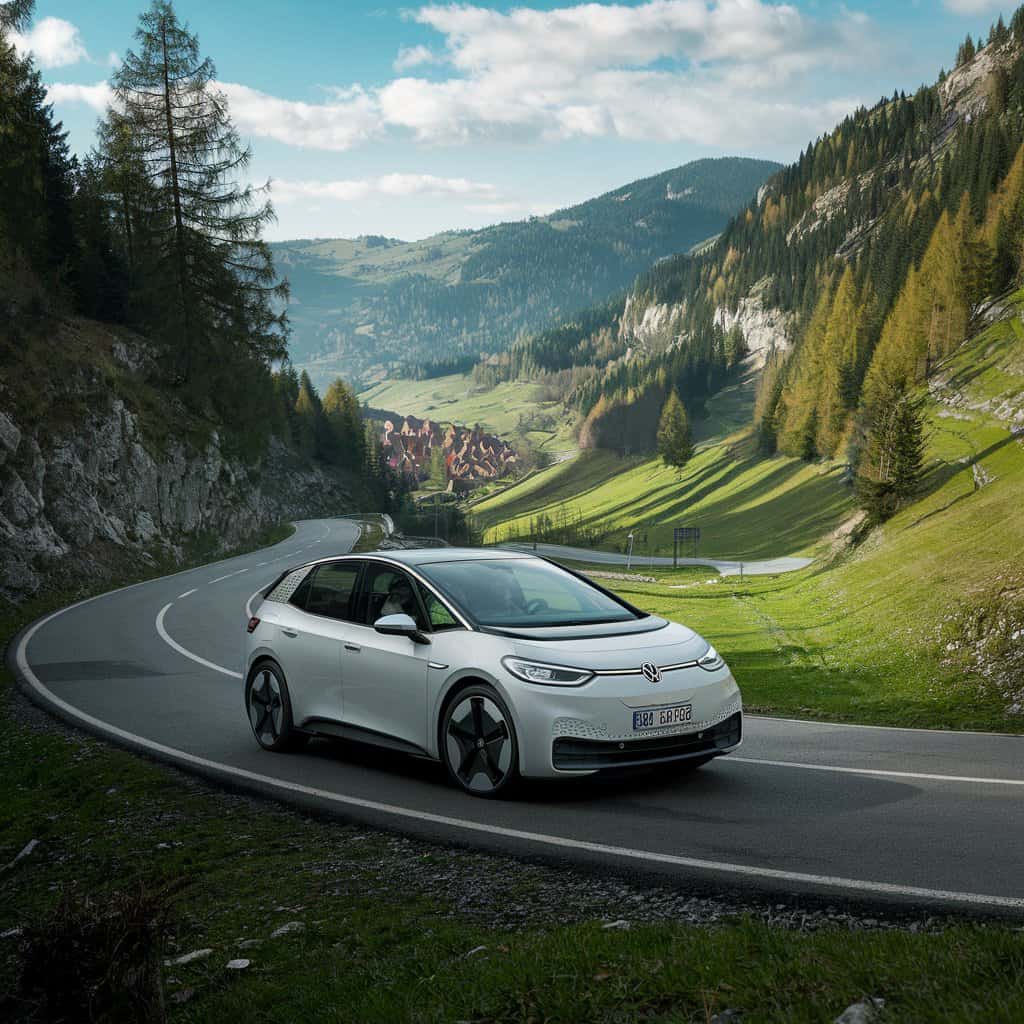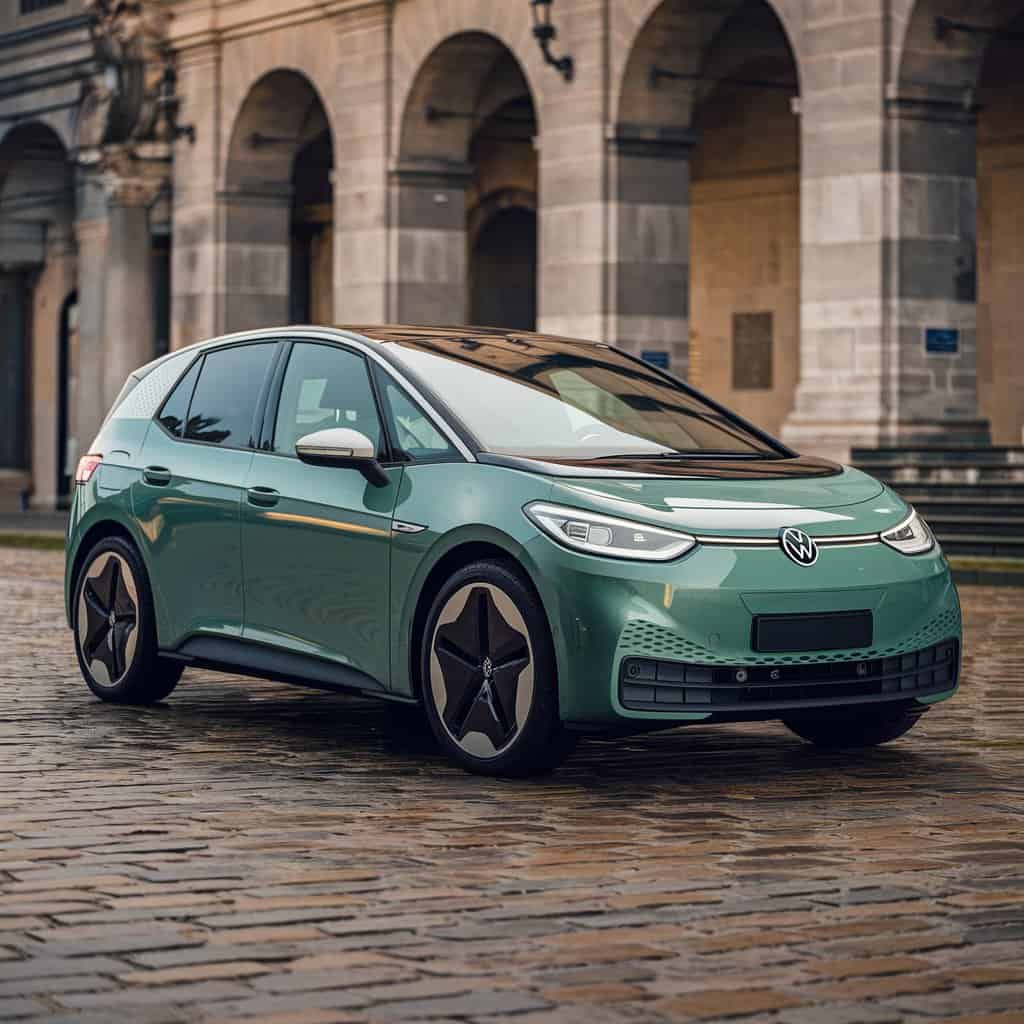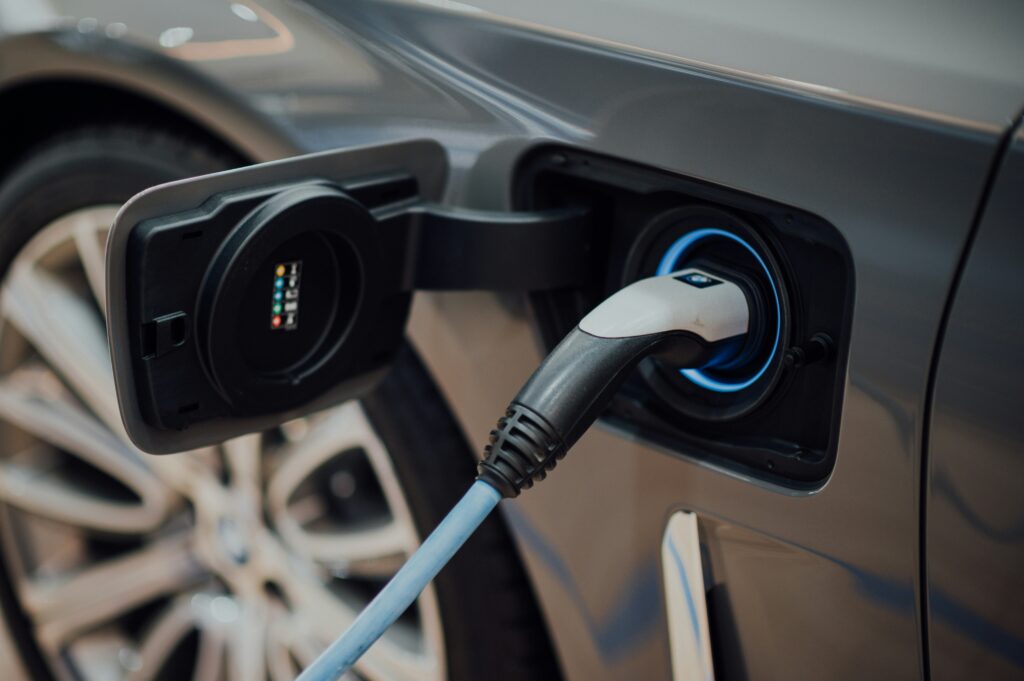Volkswagen ID.3 marks a significant milestone in the evolution of electric mobility, showcasing Volkswagen‘s commitment to a sustainable automotive future. As the first model built on the Modular Electric Drive Matrix (MEB), the Volkswagen ID.3 represents the brand’s bold step towards electrification. This innovative hatchback combines striking design, advanced technology, and eco-friendly features, making it a frontrunner in the electric vehicle segment.

The Volkswagen ID.3 not only emphasizes functionality but also caters to a growing consumer demand for sustainable alternatives. Its sleek silhouette, spacious interior, and intuitive infotainment system create an unparalleled driving experience, appealing to both urban commuters and environmentally conscious drivers. With an impressive range and quick charging capabilities, the Volkswagen ID.3 is engineered for modern life. As Volkswagen continues to expand its electric lineup, the ID.3 stands as a testament to the brand’s innovative spirit and dedication to reducing its carbon footprint.
Innovative Design: Merging Functionality with Aesthetics
Performance and Efficiency: Powering a Sustainable Future
The Volkswagen ID.3 is engineered to deliver exceptional performance while championing efficiency, illustrating how electric vehicles can power a sustainable future. At the heart of its performance is a potent electric motor, offering swift acceleration and a responsive driving experience that rivals traditional gasoline engines. The Volkswagen ID.3 can go from 0 to 60 mph in a matter of seconds, providing an exhilarating yet eco-conscious ride.
Efficiency is a hallmark of the Volkswagen ID.3, boasting an impressive range that alleviates range anxiety for many drivers. With options for different battery sizes, it can deliver up to 260 miles on a single charge, making it suitable for both daily commutes and longer journeys. The regenerative braking system further enhances efficiency, capturing energy typically lost during braking and redirecting it to recharge the battery.
Additionally, the Volkswagen ID.3 supports fast charging capabilities, enabling users to charge up to 80% in approximately 30 minutes at a compatible charging station. This convenience allows drivers to maximize their time on the road while minimizing their environmental footprint. With the Volkswagen ID.3, performance and efficiency coalesce, setting a precedent for the future of sustainable driving.
Eco-Friendly Initiatives: Volkswagen’s Commitment to Sustainability
Volkswagen has made a resolute commitment to sustainability, driving a transformative approach to eco-friendly initiatives across its operations. Central to this strategy is the development of electric vehicles, exemplified by models like the Volkswagen ID.3, which showcase the brand’s dedication to reducing its carbon footprint. This commitment extends beyond just vehicle production; Volkswagen is actively working to create a circular economy by utilizing renewable materials and enhancing recyclability in its manufacturing processes.
In addition to innovative vehicle design, Volkswagen is investing in renewable energy sources to power its factories. By transitioning to solar and wind energy, the brand aims to achieve carbon neutrality in its production facilities by 2025. Furthermore, Volkswagen is integrating sustainability into its supply chain, ensuring that the materials sourced for its vehicles align with environmental standards.
The brand’s commitment to sustainability also includes a comprehensive recycling program aimed at repurposing battery components and other materials at the end of a vehicle’s life cycle. Through these initiatives, Volkswagen is not only addressing environmental concerns but also leading the way for the automotive industry towards a more sustainable future, reinforcing its role as a responsible corporate citizen.
Driving the Future: The ID.3’s Role in Volkswagen’s Electric Vision
The Volkswagen ID.3 stands at the forefront of Volkswagen‘s ambitious electric vision, epitomizing the brand’s transition to a sustainable future. As the first model built on the Modular Electric Drive Matrix (MEB), the ID.3 is designed not just as a vehicle but as a pivotal element in a larger strategy aimed at revolutionizing the automotive landscape.
This innovative hatchback embodies Volkswagen’s commitment to electric mobility, showcasing advanced engineering that balances performance with environmental consciousness. With its impressive range and rapid charging capabilities, the ID.3 meets the diverse needs of modern drivers while reducing reliance on fossil fuels.
Moreover, the Volkswagen ID.3 plays a crucial role in Volkswagen’s goal of becoming a leader in electric vehicle production by 2025, with plans to launch numerous models under the ID family. The vehicle’s appealing design and cutting-edge technology resonate with eco-conscious consumers, fostering a new era of sustainable transportation.
In essence, the ID.3 is not merely a car; it symbolizes Volkswagen‘s dedication to innovation and its proactive stance against climate change, driving the future of mobility toward a greener horizon.
Conclusion: The Volkswagen ID.3 as a Catalyst for Change
The Volkswagen ID.3 emerges as a significant catalyst for change in the automotive industry, symbolizing a paradigm shift towards sustainable mobility. Its innovative design, coupled with exceptional performance, showcases Volkswagen‘s commitment to reducing carbon footprints while delivering an enjoyable driving experience.
As the flagship model of the ID family, the Volkswagen ID.3 sets a new benchmark for electric vehicles, seamlessly blending cutting-edge technology with practicality. It not only meets the evolving demands of eco-conscious consumers but also challenges the traditional notions of automotive luxury.
By prioritizing sustainability, Volkswagen ID.3 plays a vital role in fostering a culture of environmental responsibility. It exemplifies the future of transportation, urging other manufacturers to rethink their strategies and embrace electrification. With the Volkswagen ID.3 leading the charge, the automotive landscape is poised for transformation, steering us towards a greener, more sustainable future.


